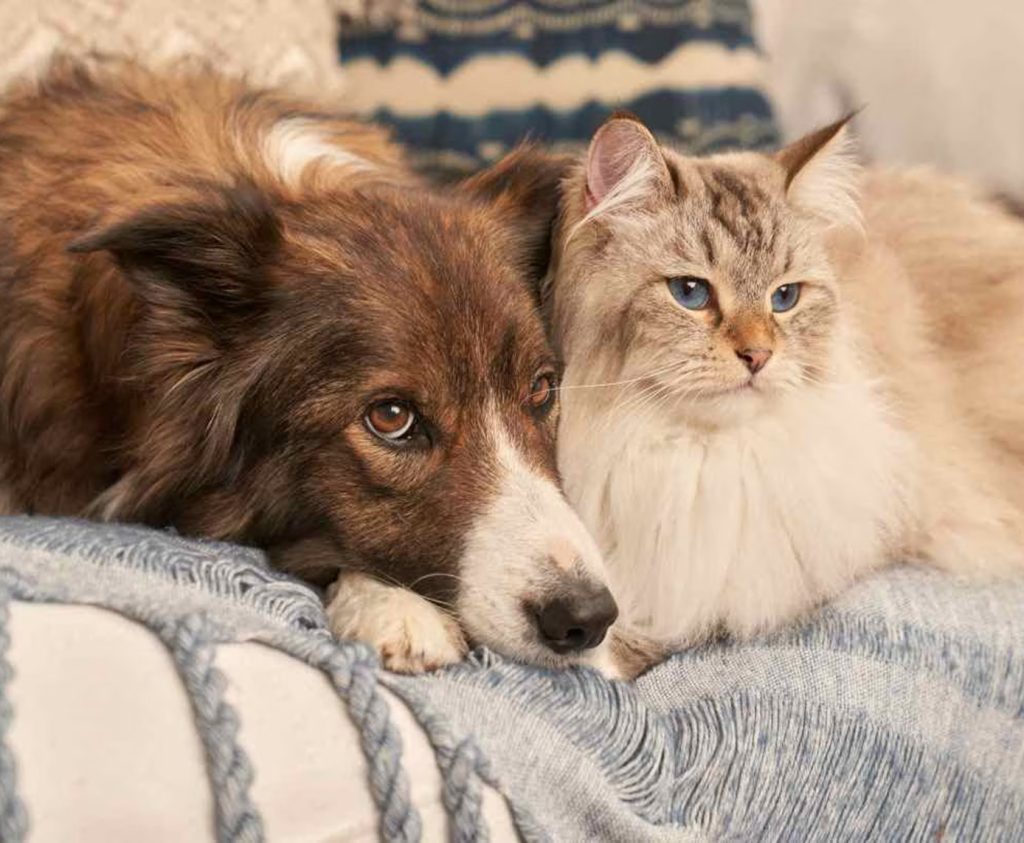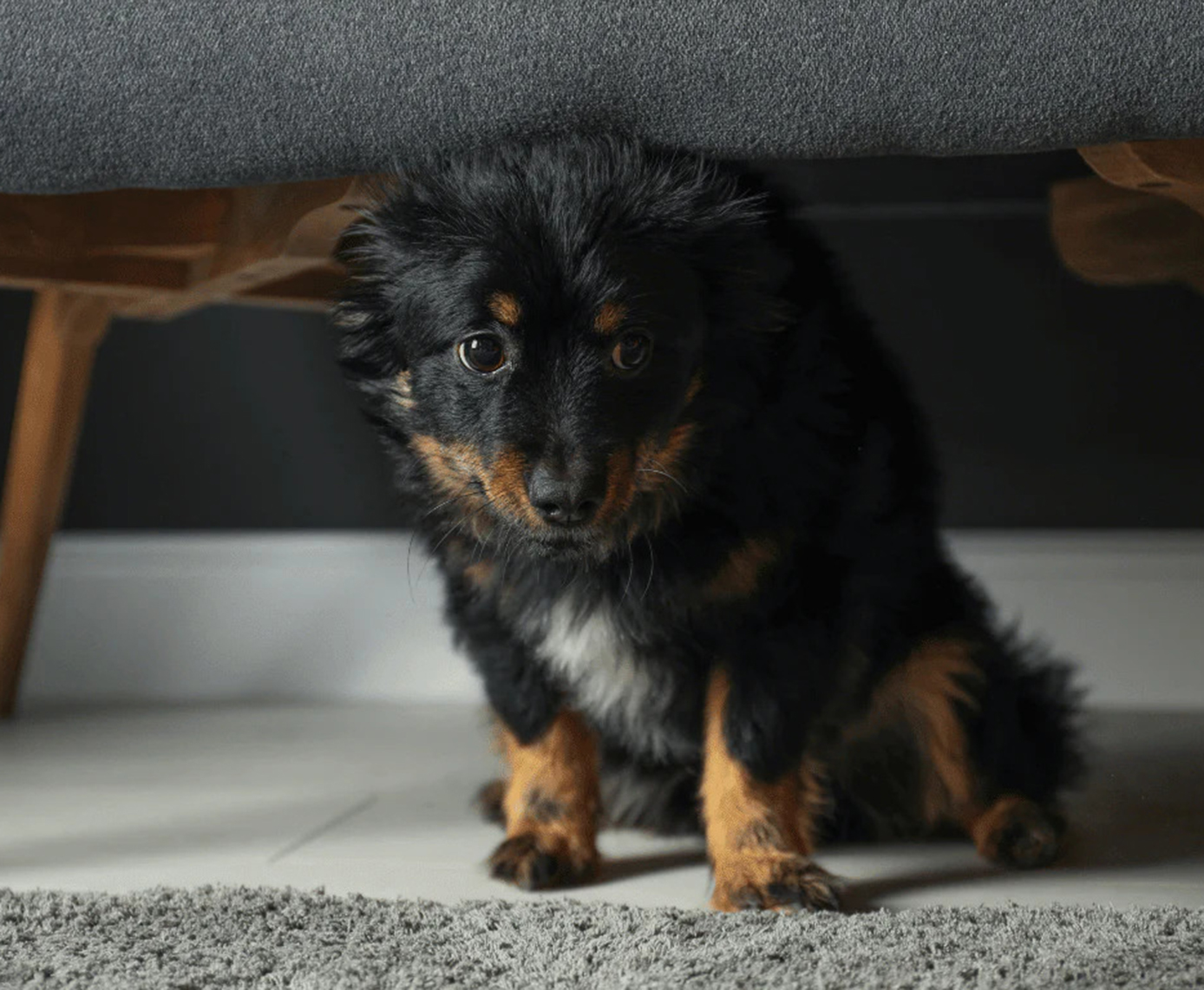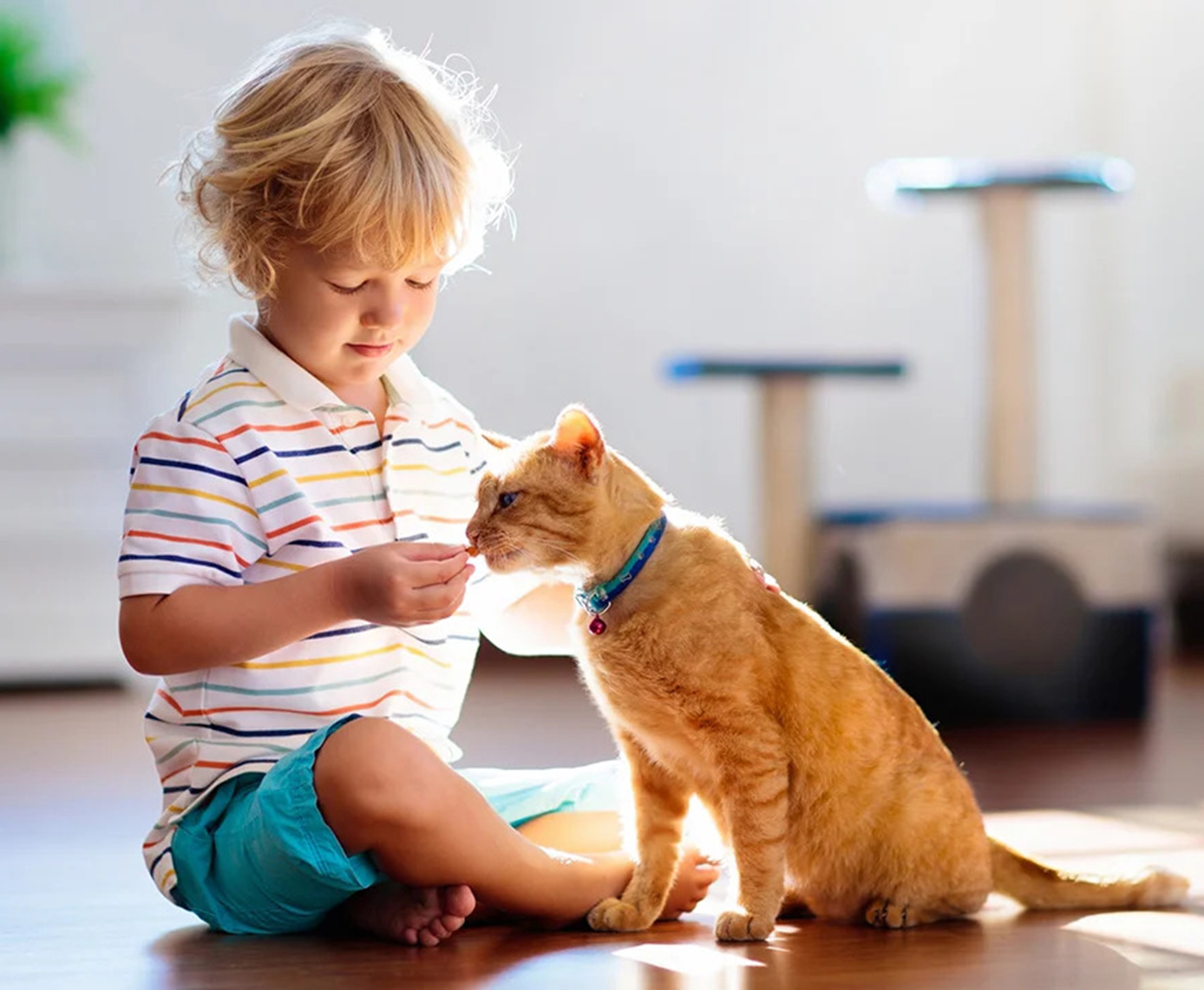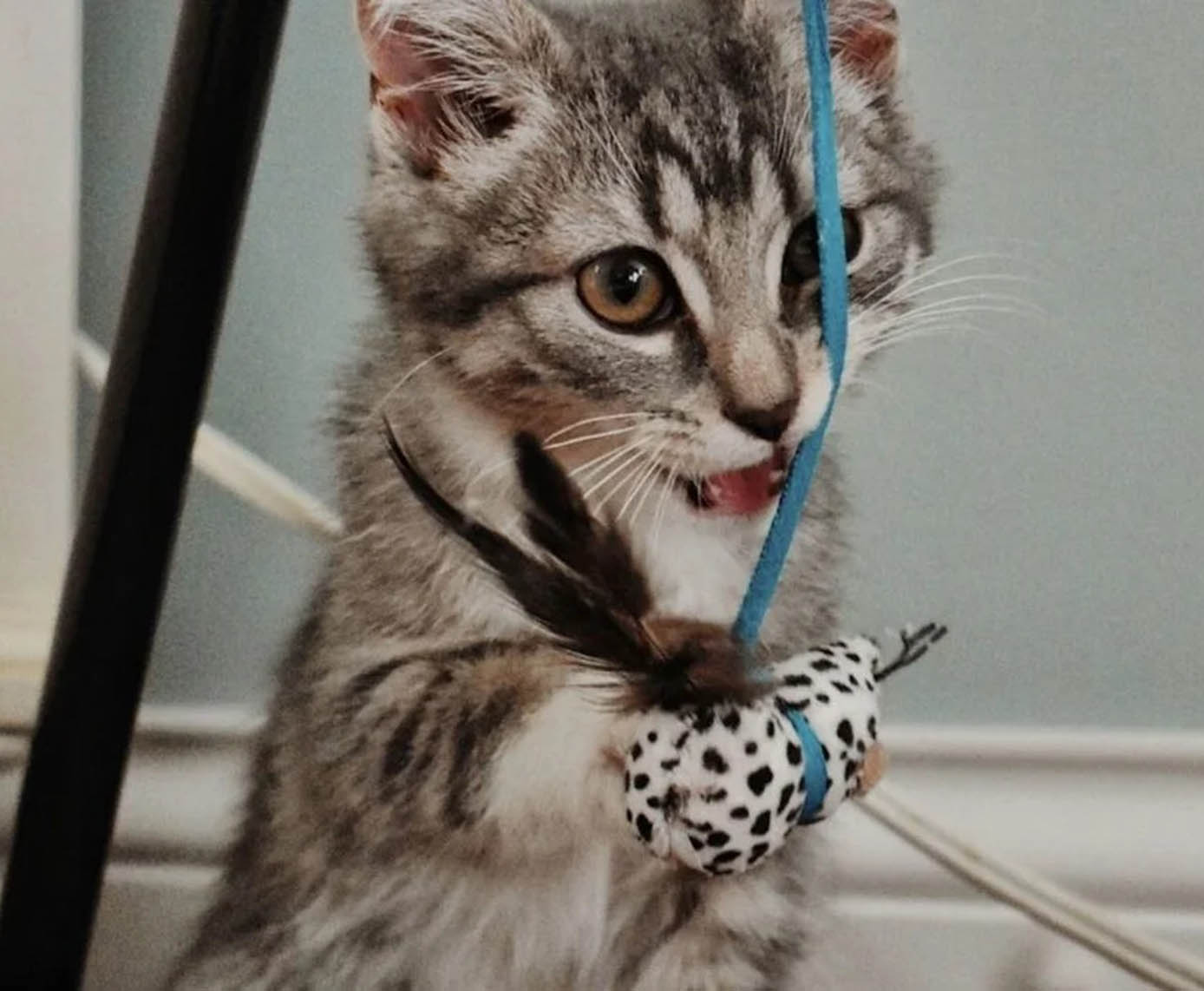We want our furry friends to be happy and comfortable in their homes. However, just like humans, pets can experience stress. Stress in pets can be caused by various factors, including changes in their environment, new experiences, separation anxiety, or even illness. Understanding the signs of stress and knowing how to help your pet manage it can significantly improve their quality of life and strengthen your bond.
We’ll explore common signs that your pet may be stressed, how to help alleviate their anxiety, and the best products you can use to reduce stress. We will also provide tips on managing stress in different situations and offer product recommendations to support your pet’s well-being.
Signs Your Pet is Stressed
Pets, like dogs and cats, have unique ways of expressing stress. Their behavior can change when they are anxious, scared, or overwhelmed. Recognizing these signs is the first step in helping them.
1. Changes in Behavior
- Aggression: A normally calm pet may become more aggressive when stressed. This could involve growling, hissing, or even biting. Cats and dogs may display this behavior when they are frightened or when they feel cornered.
- Excessive Hiding: If your pet suddenly seeks isolation or hides in unusual spots, it could be a sign of stress. Cats, in particular, are prone to hiding when they feel anxious.
- Lethargy or Decreased Activity: Pets who are normally playful and energetic may become unusually lethargic when stressed. This is especially common in dogs who are stressed due to separation anxiety or changes in routine.
- Over-Grooming or Chewing: Pets, especially cats and dogs, may engage in destructive behaviors such as chewing furniture, excessive licking, or grooming. This is often a way for them to self-soothe when feeling stressed.
2. Physical Symptoms
- Loss of Appetite: If your pet is not eating or drinking as usual, it could indicate stress. Stress can interfere with your pet’s appetite and lead to weight loss or dehydration if not addressed.
- Trembling or Shaking: Dogs, in particular, may shake or tremble when they are stressed. This could happen in response to loud noises, a trip to the vet, or being left alone.
- Heavy Panting or Drooling: Excessive panting or drooling can be a sign that your dog is stressed. This is especially common during stressful events like travel or trips to the vet.
- Changes in Bathroom Habits: Stressed pets may urinate or defecate in places they usually avoid, like inside the house. Cats may start urinating outside of the litter box when stressed.
3. Vocalization Changes
- Excessive Barking, Meowing, or Whining: Dogs may bark excessively or whine when they are feeling stressed, especially if they are anxious about being alone. Cats may meow loudly or yowl when stressed, particularly when they feel threatened.
- Purring or Hissing in Cats: While purring is usually a sign of contentment, some cats purr when they are stressed or anxious, especially if they are trying to comfort themselves. Hissing is another sign of stress in cats.
How to Help Your Pet Manage Stress
If your pet is showing signs of stress, it’s essential to address the issue quickly. Here are some effective strategies to help reduce stress in your pet.
1. Create a Calm Environment
- Establish a Routine: Pets thrive on routine. Keeping feeding times, walks, and bedtime consistent helps your pet feel secure and less stressed.
- Provide Safe Spaces: Make sure your pet has a quiet, comfortable space where they can retreat if they feel overwhelmed. A cozy corner with their favorite bed or a crate can act as a sanctuary for them.
- Calming Music: Some pets respond well to calming music or white noise. Playing soft, classical music or specialized pet relaxation sounds can help soothe your pet when they’re feeling anxious.

2. Physical and Mental Stimulation
- Exercise: Regular exercise is essential for a pet’s mental and physical health. For dogs, long walks, runs, or interactive playtime can help burn off excess energy and reduce stress. Cats also benefit from playtime and exercise using toys like laser pointers, feather wands, or puzzle feeders.
- Enrichment Toys: Keep your pet mentally stimulated with toys that challenge them. Puzzle toys and treat-dispensing toys are excellent ways to engage their mind and help alleviate anxiety by focusing their attention on problem-solving.
3. Use Calming Products
- Calming Collars: Products like Adaptil Calming Collars for Dogs or Feliway Diffusers for Cats use pheromones to help calm pets. These pheromones mimic the natural scent that pets use to feel safe and secure. Simply putting on a calming collar or using a diffuser can help reduce stress in many pets.
- Thundershirt: The Thundershirt is a calming wrap for dogs that applies gentle pressure to your pet’s body, which has been shown to reduce anxiety in dogs, particularly those with separation anxiety or fear of loud noises.
- Calming Treats: There are various calming treats and supplements available that can help reduce your pet’s anxiety. Brands like Pet Naturals of Vermont offer treats for both dogs and cats that help promote calmness. These are especially useful during stressful events like trips to the vet or fireworks.
4. Regular Veterinary Care
- Health Check-ups: Sometimes stress can be caused by an underlying medical condition. Regular vet visits can help detect any health issues that might be contributing to your pet’s anxiety.
- Behavioral Therapy: If your pet’s stress is severe or persistent, behavioral therapy may be recommended. A veterinary behaviorist can work with you to develop a treatment plan that includes desensitization and counterconditioning techniques.
Products to Help Relieve Your Pet’s Stress
Here are some highly recommended products to help manage your pet’s stress:
1. Pet Calming Diffuser (Feliway/DAP)
- Feliway Classic Diffuser for Cats and Adaptil Diffuser for Dogs are excellent choices to help calm stressed animals. These diffusers release synthetic pheromones that replicate the natural calming signals animals give off to each other.
- Where to Buy: You can purchase these products at Chewy, Petco, or Amazon.
2. Thundershirt for Dogs
- Thundershirt Classic Dog Anxiety Jacket is a well-known product for reducing anxiety in dogs. It provides gentle pressure, which has been shown to reduce stress, especially during thunderstorms or fireworks.
- Where to Buy: Available on Chewy, Amazon, and Petco.
3. Interactive Toys and Puzzle Feeders
- Outward Hound Dog Puzzle Toy and PetSafe Busy Buddy are interactive toys that help keep your dog mentally stimulated. These toys are perfect for relieving stress by keeping your pet busy.
- Where to Buy: These products can be found at Chewy, Amazon, and PetSmart.
4. Calming Treats
- Pet Naturals of Vermont Calming Chews are a natural way to help calm your dog or cat during stressful situations. These treats contain ingredients like L-theanine and melatonin to help soothe anxious pets.
- Where to Buy: Available at Chewy, Petco, and Amazon.

5. Pet Bed and Safe Space
- A soft, comfortable K&H Pet Products ThermoKitty Heated Pet Bed can be a safe and relaxing space for your pet to retreat to when they need to calm down. Pets often find comfort in cozy spaces where they can retreat and feel secure.
- Where to Buy: This product is available at Amazon, Chewy, and PetSmart.
Pets, just like humans, can experience stress, but understanding the signs and taking the right steps to manage it can significantly improve their well-being. By recognizing when your pet is stressed and providing them with the right tools and environment, you can help them feel more at ease and less anxious.
Remember to provide a calm and structured environment, ensure they have plenty of mental and physical stimulation, and use calming products that can support their mental health. Consult with your veterinarian if your pet’s anxiety is persistent or worsening, as there may be an underlying health issue to address.
Whether it’s through calming products, toys, or medical interventions, taking steps to manage your pet’s stress will help them lead a happier, healthier life. Happy pet parenting!



